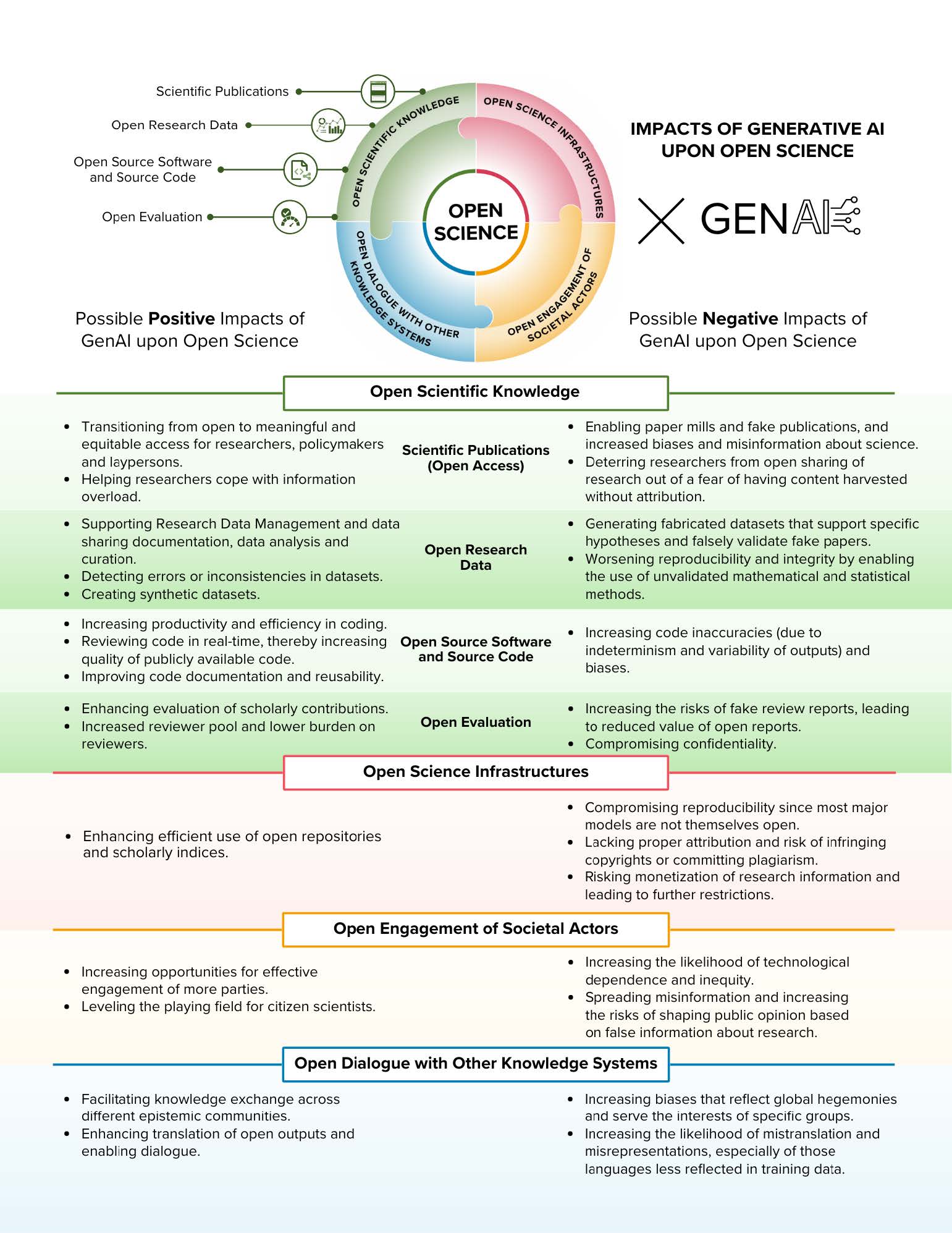New TIER2 preprint analyses the possible impacts of Generative Artificial Intelligence on Open Science
A recent preprint supported by TIER2 investigates the potential impacts of Generative Artificial Intelligence (GenAI) on the Open Science (OS) landscape. The growing use of GenAI models, such as OpenAI’s ChatGPT and Google’s Gemini, by researchers has sparked discussions about the benefits and challenges of GenAI, including issues of accountability, ethics, and legality.
As a technology increasingly used by researchers worldwide, GenAI is expected to influence various aspects of knowledge generation and consumption, including OS practices. To contribute to this discussion, the preprint’s authors – amongst which TIER2’s coordinator Tony Ross-Hellauer – map the potential impacts of GenAI on OS, highlighting possible opportunities and challenges in seven key areas: scientific publications (open access), open research data, open source software and source code, open evaluation, open science infrastructures, open engagement of societal actors, and open dialogue with other knowledge systems. Key findings are summarised in the Figure below.

A summary of possible positive and negative impacts of GenAI on OS
The analysis concludes with key themes that emerge from the study (including meaningful access, misinformation and implications for diversity, equity and inclusion) and offers specific recommendations for researchers, institutions, funders, publishers, and other stakeholders in the knowledge production ecosystem.
Read the full paper here.
